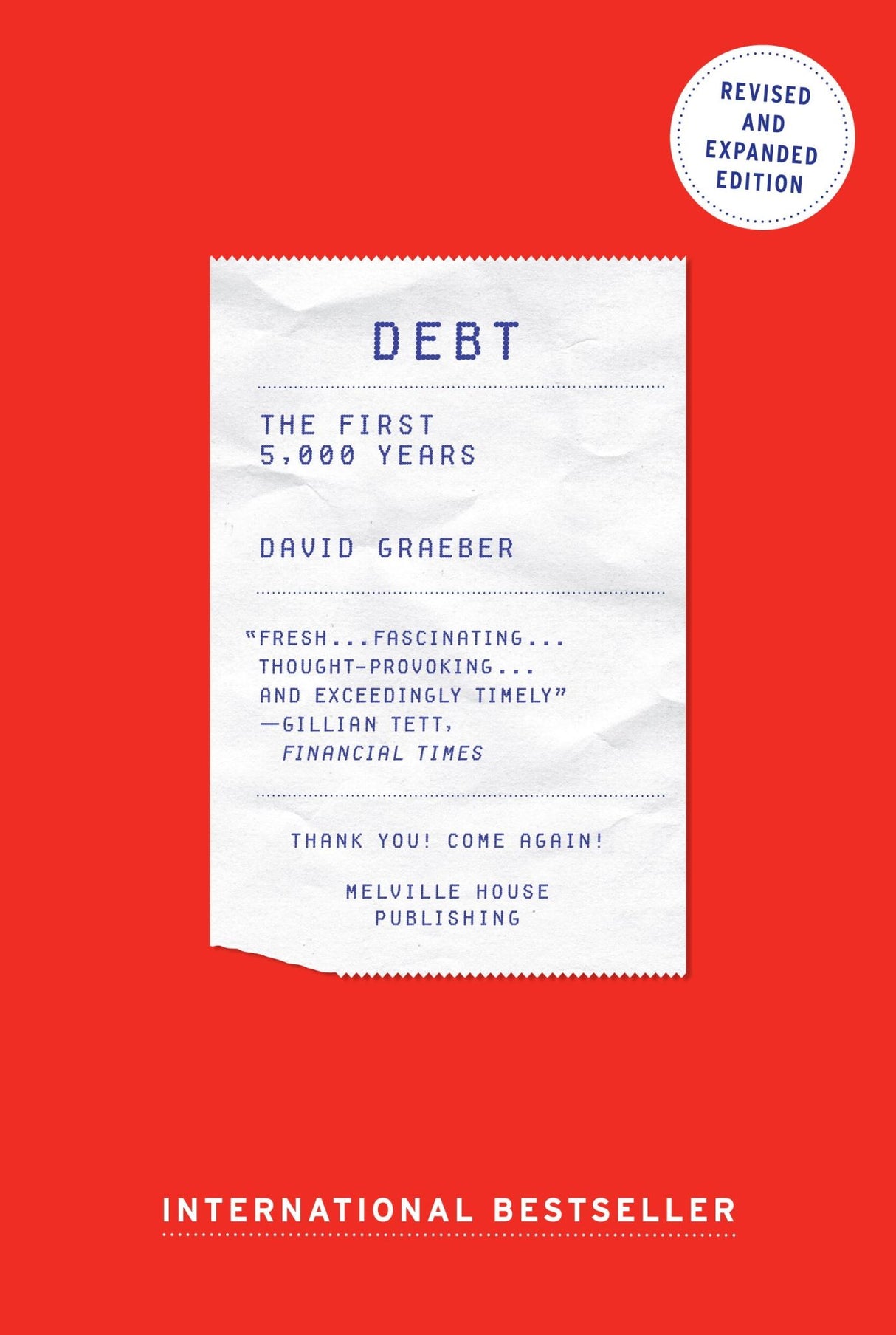SKU:
PR531973
Debt
$51.95
Unit price
/
Unavailable
Uncover the untold history of monetary systems with 'Debt: The First 5,000 Years' by David Graeber. This thought-provoking book challenges the conventional narrative that money was created solely to simplify trade and barter. Instead, Graeber presents a groundbreaking analysis of how advanced credit systems have shaped human civilization long before currency was ever invented. With 566 pages of rich content, this trade paperback delves deep into the complexities of debt and its pivotal role in economic structures, societal relationships, and political discourse throughout history.
Explore how ancient debates about debt forgiveness have ignited movements and influenced cultures from Italy to China, and how these age-old concepts of debtor and creditor still resonate in today's volatile economic landscape. Graeber skillfully traces the roots of our moral language tied to debt, discussing themes of guilt, sin, and redemption that have pervaded human history and continue to affect our lives.
'Debt' is essential for anyone interested in economics, anthropology, and the socio-political dynamics of money. This book offers a unique perspective on the credit crisis we experience today and challenges readers to reconsider their understanding of wealth, value, and moral obligations. Embrace the opportunity to dive into an enlightening discourse that emphasizes the often-overlooked significance of debt in shaping our past, present, and future. Plus, enjoy FREE shipping on this insightful read, making it an unbeatable addition to your library!
Condition: BRAND NEW
ISBN: 9781612194196
Format: Trade paperback (UK)
Year: 2015
Publisher: RANDOM HOUSE US
Pages: 566
Description:
Every economics textbook says the same thing- Money was invented to replace onerous and complicated barter systems-to relieve ancient people from having to haul their goods to market. The problem with this version of history? There's not a shred of evidence to support it.
Here anthropologist David Graeber presents a stunning reversal of conventional wisdom. He shows that for more than 5,000 years, since the beginnings of the first agrarian empires, humans have used elaborate credit systems to buy and sell goods-that is, long before the invention of coins or cash. It is in this era, Graeber argues, that we also first encounter a society divided into debtors and creditors.
Graeber shows that arguments about debt and debt forgiveness have been at the center of political debates from Italy to China, as well as sparking innumerable insurrections. He also brilliantly demonstrates that the language of the ancient works of law and religion (words like "guilt," "sin," and "redemption") derive in large part from ancient debates about debt, and shape even our most basic ideas of right and wrong. We are still fighting these battles today without knowing it.
Debt- The First 5,000 Years is a fascinating chronicle of this little known history-as well as how it has defined human history, and what it means for the credit crisis of the present day and the future of our economy.
This product has FREE shipping however combined shipping for other products is not available with this item. Please allow up to 10 days for shipping.
Explore how ancient debates about debt forgiveness have ignited movements and influenced cultures from Italy to China, and how these age-old concepts of debtor and creditor still resonate in today's volatile economic landscape. Graeber skillfully traces the roots of our moral language tied to debt, discussing themes of guilt, sin, and redemption that have pervaded human history and continue to affect our lives.
'Debt' is essential for anyone interested in economics, anthropology, and the socio-political dynamics of money. This book offers a unique perspective on the credit crisis we experience today and challenges readers to reconsider their understanding of wealth, value, and moral obligations. Embrace the opportunity to dive into an enlightening discourse that emphasizes the often-overlooked significance of debt in shaping our past, present, and future. Plus, enjoy FREE shipping on this insightful read, making it an unbeatable addition to your library!
Condition: BRAND NEW
ISBN: 9781612194196
Format: Trade paperback (UK)
Year: 2015
Publisher: RANDOM HOUSE US
Pages: 566
Description:
Every economics textbook says the same thing- Money was invented to replace onerous and complicated barter systems-to relieve ancient people from having to haul their goods to market. The problem with this version of history? There's not a shred of evidence to support it.
Here anthropologist David Graeber presents a stunning reversal of conventional wisdom. He shows that for more than 5,000 years, since the beginnings of the first agrarian empires, humans have used elaborate credit systems to buy and sell goods-that is, long before the invention of coins or cash. It is in this era, Graeber argues, that we also first encounter a society divided into debtors and creditors.
Graeber shows that arguments about debt and debt forgiveness have been at the center of political debates from Italy to China, as well as sparking innumerable insurrections. He also brilliantly demonstrates that the language of the ancient works of law and religion (words like "guilt," "sin," and "redemption") derive in large part from ancient debates about debt, and shape even our most basic ideas of right and wrong. We are still fighting these battles today without knowing it.
Debt- The First 5,000 Years is a fascinating chronicle of this little known history-as well as how it has defined human history, and what it means for the credit crisis of the present day and the future of our economy.
This product has FREE shipping however combined shipping for other products is not available with this item. Please allow up to 10 days for shipping.
Delivery Information
Delivery Information
All of our products are stocked in New Zealand, and shipped from our Auckland warehouse, this means no unexpected import fees or taxes.
Payment & Security
Payment methods
Your payment information is processed securely. We do not store credit card details nor have access to your credit card information.


